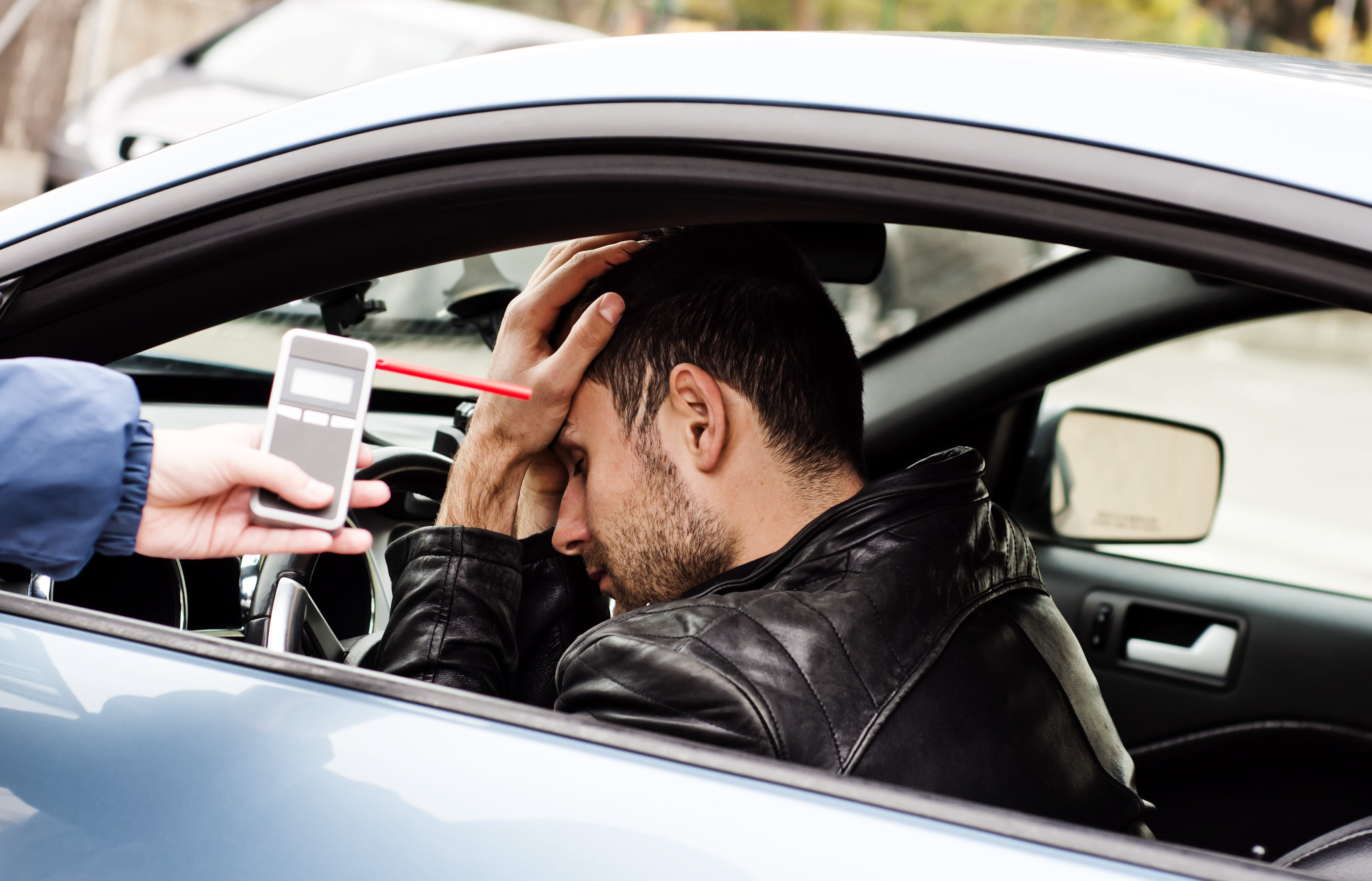The 10 Secret DWI Sobriety Tests: Post-Stop Clues of Intoxication
If a person is stopped by police for suspicion of Driving While Intoxicated—or DWI—in New York, they will eventually be asked to perform one of two types of sobriety tests. In addition to the two sets of sobriety tests, police are trained to observe secret DWI sobriety tests during the investigation and arrest phase. I call them secret because a driver is not given an option about whether or not to person the tests. These secret DWI sobriety tests are observations by police of a driver suspected of DWI before a person is given an option about whether to perform the two types of sobriety tests.

Portable breath test during a DWI stop.
The first set of DWI sobriety tests are performed by the New York City Police Department (NYPD). If the DWI stop occurs in one of the five boroughs, the NYPD will ask a driver to perform what are known as coordination tests. The three separate tests are: the walk and turn, one-leg stand and finger to nose. The tests are administered at a police precinct and are recorded on video.
Outside of New York City, police generally administer what are known as Standardized Field Sobriety Tests (SFSTs), which overlap with the NYPD’s coordination tests. The three SFSTs are: horizontal gaze nystagmus, walk and turn and one-leg stand. These tests are usually performed at roadside where a drive is stopped for DWI.
Whether the DWI stop is within or outside New York City and whether police ultimately ask a person to perform coordination tests or SFSTs, there are an additional series of secret DWI sobriety tests that will be observed. These secret tests are based on answers to questions and mere observations by a police officer. There are a total of 10 secret overlapping DWI sobriety tests, each of which is a clue of intoxication.
Inevitably, when a person driving a car is stopped by police, whether for DWI or any other reasons, police will tell a driver to place their car in park or turn off the engine and ask for their license and registration. A driver’s reaction to that simple request and question will yield several possible clues:
Difficulty with motor vehicle controls
Fumbling with driver license or registration
Slow to respond to officer/officer must repeat
Following a request for a person’s license and registration, and alternatively, police will ask a driver to exit the vehicle. That will lead to several additional possible clues:
Difficulty exiting the vehicle
Swaying, unsteady, or balance problems
Leaning on the vehicle or other object
Slow to respond to officer/officer must repeat
Odor of alcoholic beverage from the driver
Once outside of vehicle, police will likely ask a driver where they are coming from. This will lead to additional clues, some of which overlap from earlier stages:
Repeating questions or comments
Swaying, unsteady, or balance problems
Leaning on the vehicle or other object
Slurred speech
Slow to respond to officer/officer must repeat
Provides incorrect information, changes answers
Odor of alcoholic beverage from the driver
During the DWI arrest process police will continue to observe a person from the 10 secret DWI tests. In total, the 10 secret DWI sobriety tests or clues that observed by police during a DWI stop are:
1. Difficulty with motor vehicle controls
2. Fumbling with driver license or registration
3. Difficulty exiting the vehicle
4. Repeating questions or comments
5. Swaying, unsteady, or balance problems
6. Leaning on the vehicle or other object
7. Slurred speech
8. Slow to respond to officer/officer must repeat
9. Provides incorrect information, changes answers
10. Odor of alcoholic beverage from the driver
If called to testify at a DWI trial, police will testify about what they observed from the moment they make first contact with a driver and through the arrest process. The 10 secret DWI sobriety tests will play an important role in the determining whether or not a person is guilty of DWI beyond a reasonable doubt.
They are even more important if a person refuses to submit to a chemical test, like a breathalyzer. They are incredibly important if a person also refuses to perform the NYPD coordination tests of SFSTs. During a DWI stop a driver is not being paranoid if they think that police are watching a person’s every move—because police are.






Highly descriptive article, I liked that a lot. Will there be a part 2?
It’s very simple to find out any topic on web as compared to textbooks, as I found this paragraph
at this website.
Good blog you have here.. It’s difficult to find good quality writing like yours these days.
I seriously appreciate people like you! Take care!!
Very good write-up. I certainly love this site.
Keep writing!
nice post
Very good write-up. I certainly love this site.
Keep writing!
Hey there, You’ve done an excellent job. I will definitely digg it
and personally recommend to my friends. I’m sure they’ll be benefited from this website.
Awesome! Its in fact remarkable article, I have got much clear idea regarding from this post.